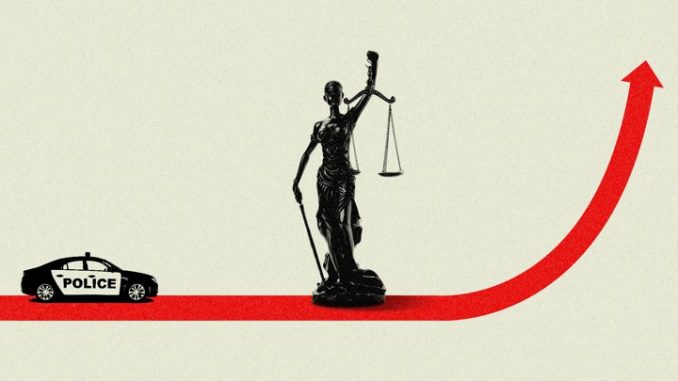
In April 2015, Timbs pleaded guilty to one felony count of dealing. Under the plea deal, Timbs was sentenced to one year of home detention and five years on probation, and he agreed to pay more than $1,200 in probation fees as well as court and police costs. The state also filed paperwork to take Timbs’s car through what’s known as civil forfeiture, in which the government seizes money, homes, vehicles, or other personal possessions, ostensibly as punishment for crimes—though cities are increasingly using the practice as a way to generate revenue.
Source: Timbs v. Indiana: Supreme Court on Policing for Profit – The Atlantic